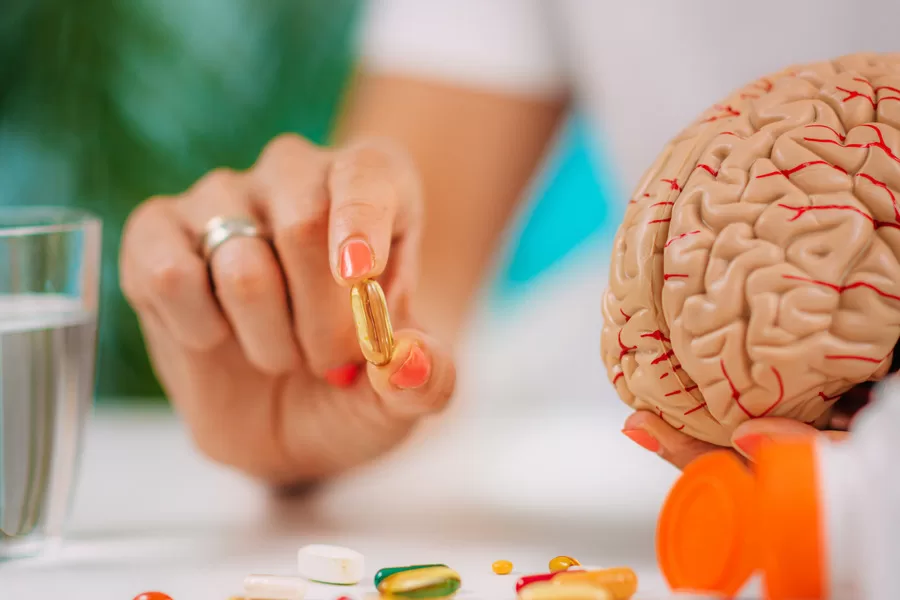
Are you on a quest for a natural solution that promises a leap towards improved health, cognitive sharpness, and vitality? Dive into the world of a remarkable polyphenolic compound that’s making waves in the realms of health and science alike.
Derived from the skins of grapes, berries, and the essence of red wine, this potent antioxidant has emerged as a guardian against cellular damage, a warrior in the fight against aging, and a beacon of hope for maintaining cognitive functions and heart health. But that’s just the tip of the iceberg.
Resveratrol
Resveratrol is identified as a polyphenolic compound, serving as a powerful antioxidant. Think of antioxidants as the guardians within our body, warding off the potential damage inflicted by free radicals. These radicals are unstable atoms that can cause harm to cells, leading to illness and aging. Resveratrol steps in as a protective agent, shielding our cells from these harmful effects.
Resveratrol’s Protective Role in Plants
In the plant world, resveratrol acts as a shield. It’s the plant’s response to external threats, such as stress, physical harm, or fungal attacks. This natural compound is the plant’s mechanism for fighting off these dangers, akin to how our immune system works to protect us from diseases and infections.
The Broad Spectrum of Resveratrol Benefits
The intrigue around resveratrol doesn’t stop at its antioxidative properties. Research has highlighted a plethora of potential health benefits that span from anti-inflammatory and anti-cancerous effects to the possibility of managing blood sugar levels, offering a beacon of hope for anti-diabetic interventions. These wide-ranging benefits underscore resveratrol’s importance not just as a protective antioxidant but as a multifaceted ally in our pursuit of health and longevity.
Resveratrol and Its Impact on Cognitive Health
The exploration of resveratrol’s benefits has taken a promising turn towards understanding its influence on cognitive functions. This compound, celebrated for its presence in red wine and certain fruits, is now being scrutinized for its brain-boosting potentials.
Boosting Brain Plasticity
Brain plasticity, or neuroplasticity, is the brain’s ability to modify, change, and adapt both structure and function throughout life and in response to experience. Resveratrol has been spotlighted for its capability to elevate the levels of brain-derived neurotrophic factor (BDNF). BDNF is akin to a superfood for your neurons; it supports the development of new brain cells and strengthens existing connections, laying the foundation for improved memory and learning abilities. The enhancement of BDNF levels by resveratrol suggests a promising avenue for bolstering brain health and cognitive functions, making it a subject of keen interest for researchers.
Combatting Inflammation
Inflammation in the brain can be a precursor to a multitude of cognitive impairments and decline. Resveratrol’s anti-inflammatory properties present a shield against such damage. By mitigating the effects of chronic inflammation, resveratrol potentially acts as a guardian, preserving the brain’s integrity and functionality. This protective mechanism is pivotal in the ongoing battle against cognitive decline, positioning resveratrol as a key player in the maintenance of brain health.
Enhancing Blood Flow to the Brain
Good circulation is fundamental to brain health, ensuring that neurons are well-supplied with essential oxygen and nutrients. Resveratrol contributes to this vital aspect by encouraging the relaxation and dilation of blood vessels, which in turn improves blood flow. This effect not only nourishes the brain but also aids in the removal of toxins and waste products. Enhanced blood circulation, facilitated by resveratrol, thus supports overall brain function and cognitive health.
Enhancing Cardio Health with Nature’s Bounty
Cholesterol Control
A critical aspect of heart health is the regulation of cholesterol. This antioxidant shines in its ability to decrease harmful LDL cholesterol levels while potentially raising beneficial HDL cholesterol. Such a dual effect is essential for preventing the buildup of arterial plaque, thus maintaining smooth, unobstructed blood flow and supporting cardiac health.
Blood Pressure Moderation
Addressing hypertension, this compound’s antioxidative properties can lead to the expansion of blood vessels, facilitating easier blood passage and consequently, lowering blood pressure. This mechanism serves as a natural strategy for those looking to manage elevated pressure levels and protect against the myriad risks associated with hypertension.
Cardiac Safeguarding
Beyond its roles in cholesterol and pressure management, this powerful polyphenol extends its guardianship to broader heart protection. It fights against systemic inflammation, halts the oxidation process of harmful cholesterol, and bolsters the health of the endothelium. These actions collectively fortify the cardiovascular system against various threats.
Overall Heart Health Enhancement
Adopting this polyphenol into your wellness routine symbolizes a proactive step towards comprehensive heart care. It addresses several pivotal health markers — cholesterol, hypertension, and vascular inflammation — showcasing its capacity as a supplementary ally in the quest for cardiac fitness. However, it should augment, not replace, foundational heart health practices like balanced nutrition, regular physical activity, and effective stress reduction.
Deciphering Resveratrol’s Influence on Brain Health
- Evaluating the Research Terrain: The fascination with resveratrol’s impact on cognitive functions must be tempered with an understanding of the research landscape’s current state. The body of work, though pioneering, predominantly features exploratory studies with limited scopes or animal-based models. These initial forays are critical landmarks, yet they beckon for broader, more definitive human research to cement resveratrol’s role in cognitive health unequivocally.
- Forging Ahead: The Next Chapter in Cognitive Enhancement Research: The rallying call for more rigorous and expansive research into resveratrol’s cognitive potential marks a new chapter in health science. Preliminary evidence suggests a bright horizon where resveratrol could significantly influence cognitive wellness, particularly among older populations. The scientific and medical communities are poised on the brink of discovery, eager to advance this narrative through robust empirical evidence.
In sum, the journey to fully comprehend resveratrol’s capacity to bolster cognitive function is marked by anticipation and promise. While the evidence thus far paints a hopeful picture, the path to conclusive insights requires continued exploration and validation. The intrigue surrounding resveratrol as a cognitive enhancer underscores its potential impact, guiding ongoing and future research efforts aimed at unlocking its full benefits for brain health.
Considerations and Dosage
Embracing this potent polyphenol for its brain-boosting properties involves a careful consideration of how much to consume. Research points towards a beneficial range from 150 to 500 mg daily. It’s essential to remember that individual needs may vary, influenced by factors like age, weight, and health status.
Interactions and Safety Measures
Despite its natural origins and safety profile at dietary levels, higher intakes, especially from supplements, require cautious approach. Interactions with blood thinners, anti-inflammatory medications, and drugs affecting hormone levels are noteworthy. Such combinations could modify medication efficacy or elevate bleeding risks. Moreover, those with conditions sensitive to hormonal changes should proceed with caution due to the compound’s phytoestrogenic activity.
Potential Adverse Effects
While adverse reactions are uncommon, they can occur, particularly at higher intakes. Gastrointestinal discomfort, including nausea and upset stomach, along with a low risk of liver impact, are among the side effects noted. Starting with a modest dose and gradually adjusting allows for personal tolerance assessment and minimizes discomfort.
Seeking Professional Advice
Consultation with a healthcare expert is invaluable for anyone contemplating this supplement. This step is crucial for those under medical treatment or with existing health issues. Professional guidance can ensure that the addition of this supplement to your regimen is safe and effective, tailored to your unique health profile.
To sum up, while the cognitive and health benefits of this powerful antioxidant are promising, responsible usage is paramount. Adherence to suggested dosages, awareness of potential interactions, and professional healthcare consultation are key to harnessing its benefits safely and effectively.
Optimizing Absorption Through Lifestyle Choices
Diet’s Impact on Nutrient Uptake
Aligning your dietary intake to support the absorption of this compound can markedly increase its benefits. Incorporating foods rich in healthy fats, such as olive oil, seeds, and fatty fish, can significantly improve its bioavailability due to its fat-soluble characteristics. A diverse diet, abundant in colorful fruits, leafy greens, and whole grains, not only enriches your nutrient profile but also creates an ideal backdrop for maximizing the positive impacts on health.
The Exercise Connection
Regular physical activity is a catalyst for enhanced absorption and efficacy. By boosting your body’s metabolism and circulation, exercise ensures that this compound is effectively distributed, reaching key areas including the brain. Emphasizing aerobic exercises that promote heart health can further support the efficient delivery and uptake of vital nutrients.
Alcohol Intake: A Balanced Approach
While this compound is famously associated with red wine, understanding alcohol’s effect is crucial. Moderate consumption may offer a natural source, yet exceeding recommended limits can counteract the benefits, particularly concerning liver health. Observing moderation—limiting intake to one drink per day for women and two for men—strikes a balance between enjoying natural sources and maintaining overall well-being.
Further Enhancements for Absorption
Beyond diet and exercise, hydration and gut health emerge as key factors in optimizing absorption. Sufficient fluid intake facilitates metabolic efficiency and nutrient transport, while a balanced gut microbiome, fostered by probiotic-rich foods like kefir and kimchi, can significantly improve nutrient absorption, ensuring that the body fully benefits from each dose.
Conclusion
Found abundantly in the likes of grapes and red wine, Resveratrol, this powerful antioxidant combats cellular wear and contributes to delaying the signs of aging. Capitalizing on its capabilities to dampen inflammation and elevate neuronal health, it stands as a bastion for enhancing mental clarity and resilience against cognitive wear. Resveratrol makes a significant contribution to cardiac vitality by promoting lipid balance, normalizing blood pressure and strengthening vascular integrity. Maximizing absorption and efficacy involves integrating foods high in beneficial fats, maintaining active lifestyle routines, and adhering to moderate consumption of red wine. As research unfolds, it underscores the necessity of complementing this compound with comprehensive wellness strategies for holistic health benefits.
FAQs
This naturally occurring antioxidant, prevalent in certain fruits and red wine, combats cellular deterioration and inflammation, promoting neuronal vigor and heart health.
Resveratrol shows promise in mitigating cellular aging markers through its antioxidative actions, though its full impact on human longevity remains a subject of ongoing study.
By reducing inflammatory responses and fostering neuronal well-being, resveratrol is believed to enhance memory functions and protect against cognitive decline.
It plays a pivotal role in cardiovascular maintenance by aiding lipid regulation, easing blood pressure, and fortifying the structural health of blood pathways.
To maximize its absorption, including fat-rich food sources in your diet, staying active, and moderating your red wine intake may be beneficial, though individual results can vary.







